Six Jesuit Universities Top US News & World Report Service Learning Rankings
BY ISN STAFF | March 26, 2014
With Pedro Arrupe, S.J.’s call to be “men [and women] for others,” woven into the mission and identity of every U.S. Jesuit higher education institution, it is no surprise that the colleges and universities maintain a strong commitment to service and justice. Nationwide, Jesuit colleges and universities encourage students to engage in service and find ways to integrate their service experiences into their classroom experience. Known as “service learning,” these programs allow students to take classes which fuse components of in-class learning and community service to foster a commitment to the greater community and increase opportunities for learning.
While service-learning is not a practice used solely by Jesuit institutions, many are recognized as U.S. World & Report’s list of Top Service Learning Schools.
According to the article, “In Spring 2013 [U.S. World News & Report] invited college presidents, chief academic officers, deans of students and deans of admissions from more than 1,500 schools to nominate up to 10 institutions with stellar examples of service learning.” The result was a list of 25 schools who were nominated most often, including six Jesuit institutions: Georgetown University, John Carroll University, Loyola University Chicago, Loyola University Maryland, Loyola University New Orleans, and Seattle University.
Ignatian Solidarity Network connected with a few of the Jesuit schools who topped the list to find out how and why their institutions are engaging in service learning efforts:
Margaret Finucane, Ph.D, Director of the Center for Service and Social Action at John Carroll University
“Service-learning provides a context for learning that enhances and deepens the students’ understanding of course content. By engaging students in the community, the intersection of theory and praxis become readily apparent, and the course content more meaningful.”
Andrea Wisler, Ph.D., Director of the Center for Social Justice, Georgetown University
“Through the Center for Social Justice, students tutor and mentor in 32 different Washington, DC public and charter schools, including seven schools in DC’s Ward 7 through the Georgetown DC Reads program. They also have the opportunity to serve through 40 community-based learning courses and CSJ’s 4th Credit Option for Social Action. The University’s commitment to service learning also includes community health clinics through the medical school, legal programs offered by the law center, and early childhood education, among other programs.
Service learning as a form of social justice work is a fixture of Georgetown University’s commitment to the Washington, DC community. Deep, decades-long relationships with communities and partners allows Georgetown’s service learning programs to be mutually beneficial and rewarding. Students hone their reflective practice skills and experience ways of learning impossible to replicate in the traditional classroom. The Jesuit tradition provides a framework through which students can explore humanity’s inter-connectedness and the imperative to uphold human dignity through their community-based commitments.”
Megan Barry, Director of the Center for Community Service and Action, Loyola University Chicago
“Community engagement is an essential element of Loyola University Chicago’s culture. In our extensive service-learning course options, students are supported in connecting classroom learning with hands-on experiences. In our rich assortment of volunteer programs and service-oriented student organizations, students build skills in direct service, non-profit administration, and advocacy. Opportunities for reflection enhance the meaning-making, values-development, and spiritual growth offered to our students through their community engagement.
Service experiences bring needed challenges to our students. Working in, with, and for the local community challenges assumptions and invites intellectual curiosity, a deepening of the spirit, and the articulation of personal values.
We are grateful for our community partners who stand with us as co-educators of our students. Without their knowledge, expertise, and generosity, our students’ learning would not be nearly so rich.”

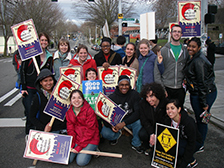
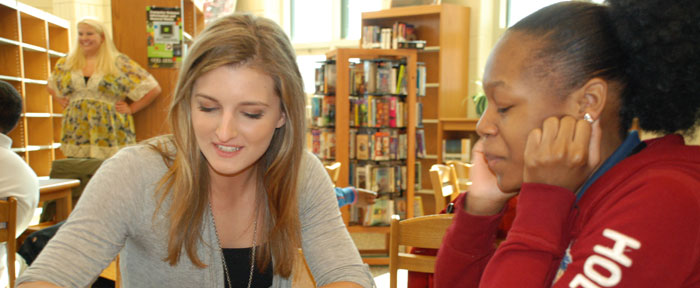
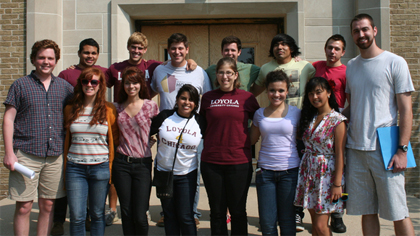

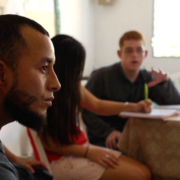
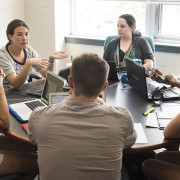






I am very proud of the superb service learning and social justice action in Jesuit institutions.
Your graduates take this spirit into their adult lives and work resulting in benefit beyond calculation.
They are truly leavening the world!